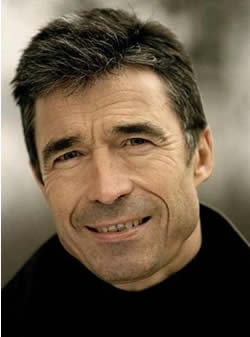Mullah Abdul Salaam Zaeef is a former Taliban ambassador to Pakistan. He spent almost four years in Guantanamo. He wears a black turban, has a thick beard -- and is never without his Apple iPhone.
The ultra-conservative Taliban banned modern technology like the Internet and TV during its 1996-2001 rule, but those items have boomed in Afghanistan since the regime's 2001 ouster, helping to bring the country into the 21st century.
Zaeef, who reconciled with the Afghan government after being released from US custody, says he uses his iPhone to surf the Internet and find difficult locations, employing the built-in GPS. He even checks his bank account balance online.
"It's easy and modern and I love it," Zaeef said as he pinched and pulled his fingers across the iPhone's touch screen last week. "This is necessary in the world today. People want to progress."
| Check out the new iApp, 'Predator' ... |
Beyond making life easier, some say the country's embrace of technology could help break the cycle of 30 years of relentless warfare. Young Afghans see the world differently from older Afghans because of their use of the Internet and mobile phones, and their participation in sports, said Shukria Barakzai, a female lawmaker and former newspaper editor.
Afghanistan's youth are not caught up in "the old circle of war," she said. "They are engaging with the rest of the world. That's why technology is so important for Afghanistan."
As an example she uses the popular television show Afghan Star, a version of the American Idol-style singing contest, which draws millions of viewers each week, both young and old. Viewers vote for a winner by text messaging, helping to promote democratic practices, she said.
Eight years ago Afghanistan had only a few hundred cell phone users, mostly members of the Taliban government. Today it has more than eight million, meaning roughly one in four Afghans uses a mobile phone, according to government figures.
NATO Secretary-General Jaap de Hoop Scheffer said in a speech earlier this year that Afghanistan was "in the Middle Ages" when the Taliban was toppled. Today, he said, half the country is at peace and access to education and health care are up 10-fold. "When I saw an Afghan fellow pull out his Apple iPhone in Kabul, while I was talking on my 5-year-old NATO mobile, I saw another symbol of progress," he said of a recent trip to Afghanistan.
The Afghan capital has one gleaming mall, with glass elevators and escalators and a rare European-style coffee shop. Electronic stores stocked with GPS units, Sony PlayStations, flat screen TVs and iPods fill the shopping centre.
Faridullah, the owner of an electronics store who like many Afghans goes by one name, said he sells about four iPhones a month to wealthy Afghans. The price in Kabul has dropped from $1,100 one month ago to about $800 today, he said.
"The country is really progressing now. Nine years ago the country didn't know about mobile phones. We can't compare today to nine years ago," he said. "It's like a custom now in Afghanistan that even if someone doesn't have enough money to eat he'll still carry an expensive cell phone."
Still, the average annual income in Afghanistan is just $800, so shop owners must target the ultra-wealthy and foreigners. Most Afghans never have heard of an iPhone. "It's still pretty expensive," Jawid, the owner of another electronics store, said of iPhones and other modern gadgets.
Zaeef, the former Taliban official, said he has always been interested in technology despite his militant links. He used a laptop and satellite phone to access the Internet in the late 1990s, and now he surfs the web an hour a day, he said. Zaeef said he tried to persuade top Taliban officials to let Afghans have more access to modern electronics in the late 1990s, and he noted that the Taliban itself now embraces technology. |
 [Al Arabiya Latest] Danish Prime Minister Anders Fogh Rasmussen will be the next NATO secretary general, he and his predecessor said Saturday, after alliance leaders persuaded Turkey not to veto the nomination.
[Al Arabiya Latest] Danish Prime Minister Anders Fogh Rasmussen will be the next NATO secretary general, he and his predecessor said Saturday, after alliance leaders persuaded Turkey not to veto the nomination.